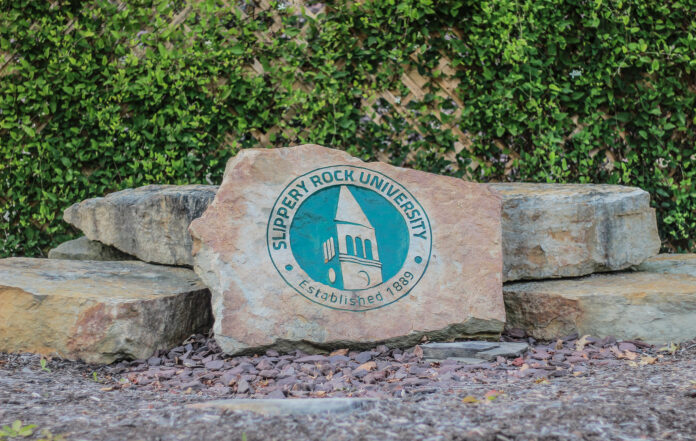The fall semester is in full swing, and once again students are susceptible to stress and anxiety. According to The American Institute of Stress, 45% of college students report experiencing “more than average stress.”
Students may also struggle with short attention spans and decreased cognitive function from burnout. To limit these issues, students can turn to something they may have not considered: nature.
Nature is proven to have a positive impact on mental health and cognitive function.
“Spending time in nature helps us to feel good. We experience more positive emotions, motivation and optimism. People who spend time in nature tend to be happier and more self-confident,” SRU psychology professor Jennifer Willford said.
“When we spend time in nature, we activate a part of our nervous system that helps us to relax, directly countering the effects of stress on the mind and body,” she said.
Spending time in nature can increase dopamine and serotonin levels in the brain, helping to reduce stress and promote feelings of calm and happiness.
“Nature has a healing effect on my mind,” freshman Chris Kirchner said. He claims nature allows him to destress. “If I am ever feeling stressed, I will go on a walk or just simply sit outside and listen for birds.”
A significant impact of nature on students’ mental well-being is an increased attention span. Research Willford did with a team of psychology students proved that nature can restore cognitive function, according to the Attention Restoration Theory.
“[W]e were able to show that spending time in nature by walking through an ecotherapy nature maze could also restore working memory. As a college student, taking a small nature break could help you while you are studying!” the professor said.
SRU students have access to nature right in their backyard. Places like Moraine State Park and McConnells Mill State Park are accessible by car. Additionally, Rock Falls Park is only two miles away from the university.
Even closer is the Macoskey Center, which is just a short walk from the residence halls on campus.
The Macoskey Center offers a variety of opportunities for SRU students, including volunteering, workshops and other educational activities. Its trails, open to whoever wishes to use them, provide students with a place to immerse themselves in nature.
“Spending time in nature reduces the physical effects of stress on the body and the psychological effects of stress on the mind for college students,” Willford said.
If students are stressed, taking advantage of the natural world on and off campus could increase their mental health.








